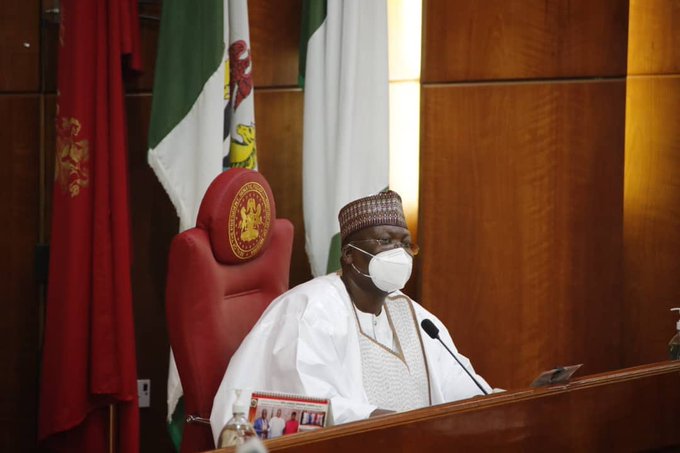The senate has passed the revised 2020 budget of N10.52 trillion for second reading.
The passage of the appropriation bill for second reading — just about an hour after it was introduced — followed a motion moved by Yayaha Abdullahi, senate leader, on Thursday.
In his motion, Abdullahi asked the senate to suspend its relevant rules so they could debate on the revised budget immediately.
The motion was unanimously adopted. The bill scaled second reading after Senate President Ahmad Lawan put it to a voice vote.
Advertisement
After it was voted on, the senate president referred it to the appropriations committee for further legislative input.
The senate had received the revised 2020 budget.
Lawan read a letter from President Muhammadu Buhari informing the lawmakers of the revised budget on the floor of the upper legislative chamber.
Advertisement
The president had assented to N10.59 trillion as the budget for 2020 in December.
But it was reviewed downwards to N10.27 trillion following the outbreak of COVID-19 that forced oil prices to dwindle.
However, the federal executive council (FEC) increased the budget by N318 billion to N10.52 trillion after oil prices appreciated on May 13.
In the letter, the president said it was necessary to amend the 2020 appropriation act because it was no longer sustainable as a result of the COVID-19 pandemic.
Advertisement
“It is with pleasure that I forward the revised 2020-2022 Medium Term Expenditure Framework (MTEF) and Fiscal Strategy Paper (FSP) and the revised appropriation bill for your kind consideration and approval by the senate,” Buhari said.
“Let me use this opportunity to express my deep gratitude for the patriotism operation and support by the distinguished members of the senate in our collective effort in the appropriation act 2020 and accelerate its implementation.
“It has become necessary to pass the 2020-2022 MTEF/FSP and amend the appropriation act 2020 in view of the sharp decline on crude oil prices and the cut in Nigeria’s crude oil production quota occasioned by COVID-19 pandemic.
“In effect, the assumptions underlying the 2020 appropriation act are no longer sustainable. It is also imperative to adjust expected revenues disruptions and economic activities as well as international trade and transportation due to the measures implemented across the world to curtail the spread of COVID-19 pandemic.
Advertisement
“Furthermore, it is necessary to reallocate resources in the appropriation act 2020 to ensure implementation of required emergency measures and other actions necessary to mitigate socio-economic effects of COVID-19 pandemic.”
Advertisement
Add a comment







